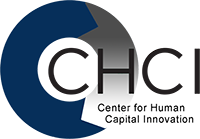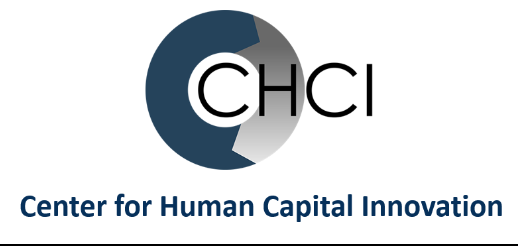
Rethinking Resumes: Embracing Atypical Work Histories in the Hiring Process
America’s workforce is aging. Talent shortages are increasing. Accordingly, employers are recognizing the value of recruiting candidates with diverse work experiences. Resourceful employers have found that jobs previously reserved for degree holders, for example, can be done by employees who have acquired the necessary skills in other ways, such as experience, self-study, and volunteerism.
Traditional resumes often fail to capture the breadth of skills and attributes that candidates with atypical work histories bring to the table. From veterans to parents returning from caregiving duties, those recovering from medical leave or individuals seeking second chances after incarceration, these potential employees offer untapped potential that can enrich any organization. We will explore how employers benefit from focusing less on chronological employment history and more on an individual’s unique qualifications and skills.
The Hidden Strengths of Atypical Work Histories
People with work histories that don’t follow the traditional path often develop a wide range of transferable skills that may not be evident in the standard resume format or even in a typical interview. These can include adaptability, problem-solving, resilience, and strong interpersonal skills, which are highly valuable in the workplace. Hard skills, such as computer programming and project management, can be acquired in alternative ways. By looking beyond traditional employment and educational paths, employers can discover talent that fulfills their needs while contributing to a more dynamic and resilient workforce.
Veterans and Military Spouses
Military veterans are a prime example of candidates with atypical work and educational histories who bring invaluable assets to civilian workplaces. A study highlighted on Military.com lists several reasons why veterans are highly sought after by employers. Veterans typically:
- Possess a strong aptitude for leadership
- Work well in teams
- Have a proven ability to work under pressure
- Exhibit a high level of reliability and discipline
- Often bring years of field-tested, in-demand hard skills
Moreover, the Veterans Employment Toolkit and studies by RAND reveal that veterans bring nontechnical skills such as strategic thinking and the capability to adapt to changing environments.
And don’t overlook veterans’ spouses, who are often accustomed to frequent relocations and managing family transitions. Through deployments and continuous change, they develop resilience, openness, and exceptional organizational skills. They typically thrive while multitasking and exhibit flexibility, major assets in an agile business environment.
Former Stay-at-Home Parents and Caregivers
Former stay-at-home parents and caregivers offer a wealth of abilities developed through managing households and caregiving roles. According to Indeed, these individuals often develop exceptional project management skills, problem-solving skills, and interpersonal communication. They are adept at handling multiple responsibilities simultaneously, developed by effectively managing family needs and schedules.
Despite facing biases when returning to the workforce, these individuals often display high motivation to succeed and make significant contributions once hired, as highlighted in a 2023 Forbes survey. Articles from the Washington Post and Harvard Business Review emphasize the range of skills developed in the home and that former stay-at-home parents often bring a fresh perspective and a strong drive to prove their capabilities in professional settings.
People With Disabilities or Returning from Medical Leave
Individuals returning from medical or mental health leave and those with disabilities present potential that is often overlooked. Reports from HR Brew and LinkedIn highlight cancer survivors as an untapped talent pool, showcasing resilience and motivation. The U.S. Department of Labor indicates that hiring people with disabilities can enhance business performance due to their unique perspectives and innovative problem-solving approaches. Employers are starting to see disability as a source of competitive advantage, and policies aimed at accommodating these candidates have been shown to improve organizational culture and employee retention rates.
Many employers harbor misconceptions about the capabilities of candidates returning from medical or mental health treatment, viewing them as potentially less reliable or more prone to absenteeism. This bias can result in unfair hiring practices that overlook the resilience and viewpoints these individuals bring to the workforce. Additionally, gaps in employment due to health-related issues may raise concerns for hiring managers, further complicating the candidate’s chances of securing a position. As a result, individuals may feel discouraged, struggling to demonstrate their readiness. These barriers can be addressed through diversity and inclusion best practices.
Addressing Resume Gaps: Focusing on Skills and Experience
When evaluating candidates with resume gaps, look for experience and skills gained during non-working periods. Articles on CareerPlug, and Test Gorilla suggest that interviewers ask about their experiences and knowledge gained during their breaks, whether through volunteering, caregiving, or personal projects. This approach helps identify valuable transferable skills and demonstrates a candidate’s ability to leverage their capabilities in professional settings.
From a legal perspective, a recent article on ERE warns against the dangers of rejecting candidates purely based on employment gaps. Instead, viewing these periods as opportunities for growth and learning allows employers to find outstanding candidates who might otherwise be overlooked.
Key Strategies for Employers
It’s vital that employers rethink their hiring processes and be more inclusive to candidates with diverse backgrounds. Below are some practical tips that can be easily implemented to support prospective team members with atypical backgrounds:
- Redefine Resume Evaluation: Shift your focus from chronological work history to proficiencies, achievements, and personal growth experiences. Look for qualities like adaptability, leadership, and resilience that indicate how candidates will perform in future roles.
- Implement Inclusive Hiring Practices: Develop policies that recognize and value diverse work histories. Encourage hiring managers to seek diverse candidates and understand the context behind employment gaps.
- Provide Training and Support: Support the transition of candidates with atypical backgrounds by offering onboarding programs that focus on skill development and integrating nontraditional employees into the company culture.
- Highlight Success Stories: Publicly share examples of team members with atypical work histories who have succeeded and contributed positively to the organization. This can shift perceptions and foster a culture of inclusivity and appreciation for diverse experiences.
- Utilize Tools and Resources: Leverage tools like career progression templates and skill assessment programs to better understand the value atypical candidates bring. Organizations like Psycharmor provide courses on supporting veteran employees, which can be expanded to various groups with unique backgrounds.
Embracing candidates with atypical work histories can transform your organization by infusing it with diverse perspectives, innovative solutions, and enhanced resilience. It is up to the employer to ensure their focus is on candidates’ abilities, not just how good they look on paper.
What other groups have you seen with atypical employment or education histories that have made positive contributions to their workplace? How else can an organization be more inclusive toward job candidates that don’t look as good on paper as they are in real life?
Leave a comment below, send us an email, or follow us on LinkedIn.


Leave A Comment